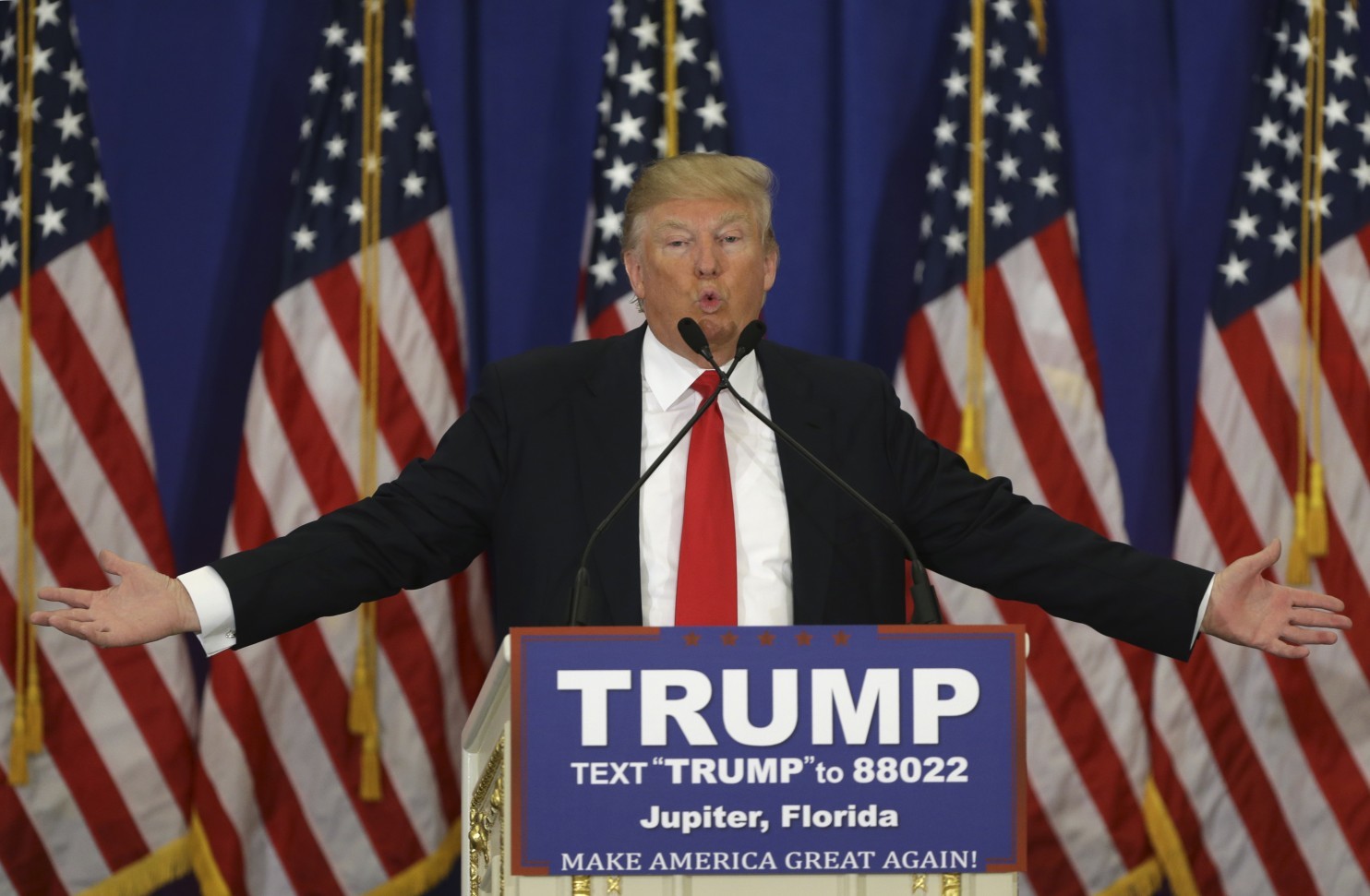
The Republican presidential field is winnowing. By most accounts, all that’s keeping Sen. Marco Rubio from getting drummed out of the race is one date and one state: March 15 and Florida. That’s not much of a firewall for the establishment’s last great hope. Sen. Ted Cruz (Tex.) is faring a bit better, yet everywhere I go, Cruz is the “yeah, but . . .” candidate. Even when GOP faithful are walked through his conservative credentials or attack-dog approach to the Democratic front-runner, I often see a “yeah, but . . .” shrug of the shoulders.
Let’s assume that Donald Trump does, in fact, continue on his remarkable blitzkrieg to Cleveland and secures the right to cross swords with Hillary Clinton in the fall. What happens down-ticket? How will House and Senate candidates run with Trump as their standard-bearer? Will they fall in line? Or will they buck all the attention the GOP nominee can bring to a district or state — attention that these candidates may need to win?
So much more than the White House is at stake. With such a polarizing figure at the top of the ticket, the political ramifications are not as easy to decipher. Let’s walk through some options for down-ticket candidates:
●Dump Trump: While attractive for several reasons — significant portions of the electorate say they would never vote for him — this strategy has its downsides. For one, many voters will be turning out for the first time because of Trump. If you are a candidate in a heavily Democratic district or need a boost to tip the scales in your favor, it may not make political sense to shun the presidential nominee. Even if your strategy is to drill down for evangelical Christian conservatives, for example, embracing Trump may help you (see: Jerry Falwell Jr.’s Trump endorsement). But what if The Donald then goes off the deep end and forgets that the gospels are part of the Bible? Will any down-ticket candidate be able to ignore that? Trump’s lack of consistency on the issues, and even in the rhetoric he uses, makes him unpredictable. This has to give any candidate pause.
●Lone wolf: What does Sen. Rob Portman (Ohio) do in his critical state? If turnout among African Americans or those ages 18 to 25 falls off just a little from 2012 levels, Republicans can easily win the state. It may make sense for Portman to walk a delicate line and go his own way in the Buckeye State, without truly repudiating or embracing Trump. Will he be able to? You can bet Democrats will try to tie the Trump millstone around Portman’s neck. In today’s atmosphere of instant coverage and viral news, I’m not sure Republican candidates can avoid taking a stand on Trump.
●Cuddle Trump: I can think of dozens of Republican House (and a few Senate) candidates who relish the idea of Trump campaigning in their districts or states. Think about it: Trump is the personification of vented frustration. He carries the anger and “do something” attitude these veteran House members have been trying — and failing miserably — to harness for years. To most of their constituents, these congressmen are part of the problem, so they will run to Trump’s side quicker than Chris Christie. Sure, they’ll have to dismiss his zany, off-the-wall antics, but they’ll largely align to tap into the sentiment propelling Trump. Where this gets tricky, however, is on matters of public policy. Just how would a rock-ribbed Republican handle the dilemma posed by Trump’s waffling on Planned Parenthood and other issues? It’s okay to be willing to “negotiate” if you’re one man setting the agenda, but House Republicans are part of a larger body. They can’t signal gray areas to voters who want absolutes. This will be especially tough for congressmen who won last cycle with less than a five-point margin.
●The Prius approach: Some candidates will try a hybrid campaign, picking the “good” that aligning with Trump brings while striking formal, broader contrasts with the nominee beyond merely trashing his goofy mannerisms. I see this avenue having appeal in the Northeast, with its more liberal Republican base, as well as in more populist states such as Minnesota. Candidates such as Sen. Kelly Ayotte (N.H.) will need to acknowledge the furor of the electorate but maintain a statesmanlike demeanor.
● The Ryan test: To put a finer point on the hybrid strategy, there are many candidates who will be strict disciples of what I have called the Ryan test. Taking a cue from House Speaker Paul D. Ryan (Wis.), they will not condone and, instead, will aggressively attack any Trump policy that directly harms the Republican brand. If Trump goes after free-market principles, the sanctity of life, the rule of law, or taxing and spending discipline, for instance, they will stand to protect these core tenets of the party platform. But this approach, too, brings pitfalls. If mishandled, voters could come to see such candidates as part of the same old country club in need of toppling.
There are lots of variables in this political calculation. But as 1,237 delegates begins to look more and more attainable for Trump, expect the GOP party faithful to pivot to the strategic interests of their down-ticket candidates this November.
- Publish my comments...
- 0 Comments
